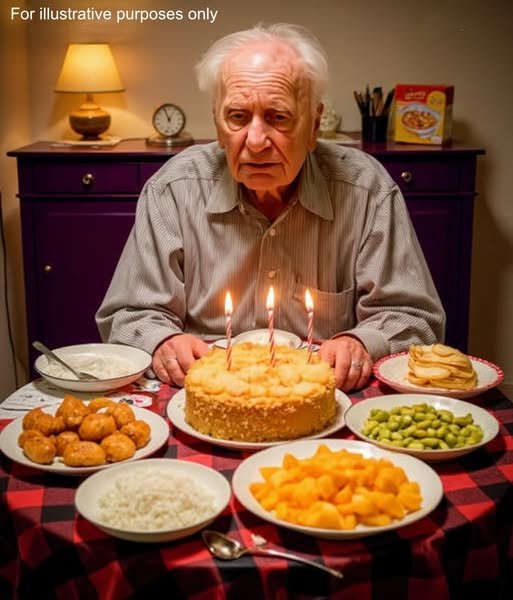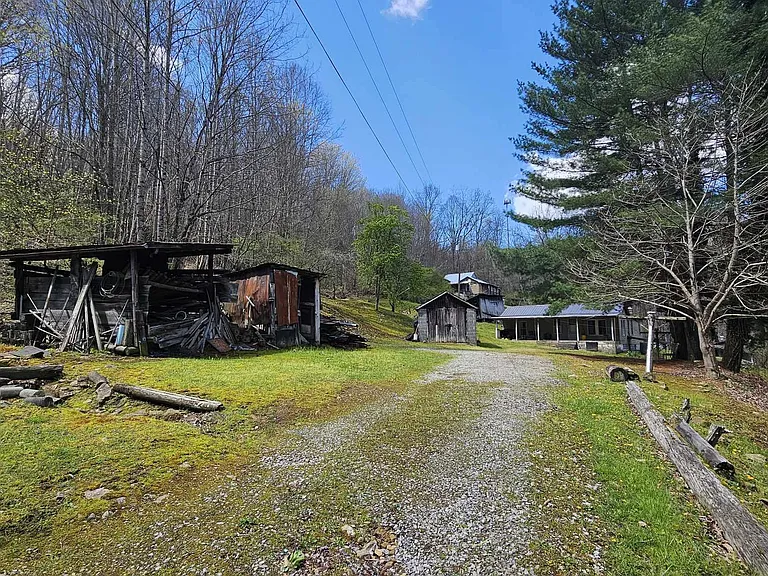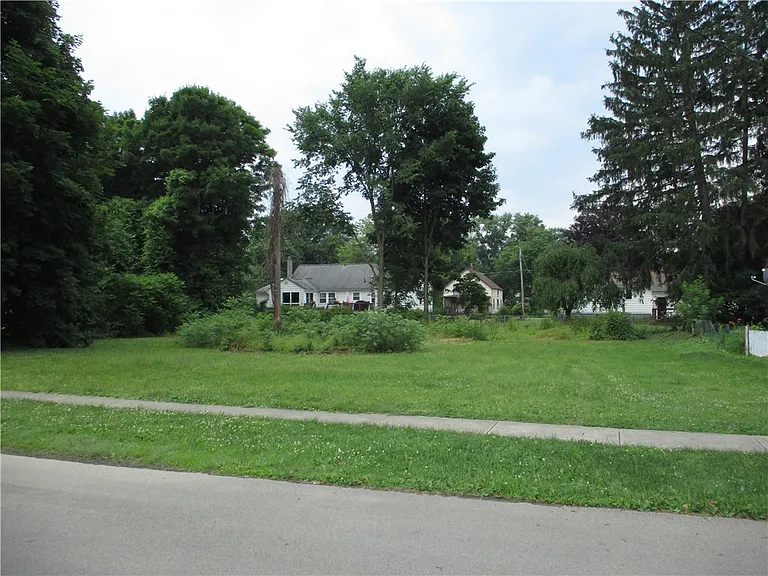I Kept Declining My Grandpa’s Birthday Invitations – Years Later, I Returned and What I Saw Filled Me with Regret
For 11 years, I ignored my grandfather’s birthday calls, telling myself I was too busy for his old-fashioned ways. Then one June, the call didn’t come. When I drove to his house, smoke-stained walls and broken windows told a story that stopped my heart.
I’m Preston, 31, and this story is hard to share, but I need to tell it because someone else might be making the same mistake I did.
My Grandpa Wesley raised me after my parents died in a car crash when I was seven. I don’t remember much about them—just the scent of my mom’s perfume and my dad’s deep laugh from the garage where he worked on old cars.
But Grandpa Wesley? He became my whole world.
He was tough and traditional, the kind of man who believed in strong handshakes and hard work. But he was also the heart of my childhood.
Every morning, I’d wake to the smell of his strong black coffee filling our small house. He’d be on the front porch in his old wooden chair, waiting for me to shuffle out in my pajamas.
“Morning, kid,” he’d say, ruffling my hair. “Ready for an adventure?”
And we had them. Real adventures. He taught me to fish in the creek behind our house and to care for his vegetable garden.
“Plants are like people, Preston,” he’d say, kneeling beside me in the dirt. “They need different things to grow. Your job is to notice and give them what they need.”
But his stories were what I loved most.
Every evening after dinner, we’d sit on that porch, and he’d tell tales about our family, his childhood, or adventures from when he was young.
Those were the best years of my life. I felt safe, loved, secure in the world we built in that little house with creaky floors and faded wallpaper.
But when I turned 17, something changed. Maybe it was teenage rebellion, or maybe I started noticing how different our life was from my friends’. Their parents were younger, drove newer cars, lived in houses that didn’t smell like old wood.
I started feeling ashamed.
When friends wanted to come over, I’d suggest meeting somewhere else. When Grandpa picked me up from school in his beat-up truck, I’d ask him to drop me off a block away.
When I graduated high school and left for college, I told myself it was normal. Kids grow up and move out, right?
But deep down, I knew I was running from something. Running from the embarrassment of our simple life, his old-school ways, and the house that suddenly felt too small for who I thought I was becoming.
That’s when I started skipping his birthday invitations.
Every June 6, my phone would buzz.
“Preston, it’s your old grandpa,” he’d say. “Come over for my birthday dinner. Made your favorite pot roast. Hope you can make it.”
Every year, I had an excuse. College exams. Work deadlines. Plans with friends. A girlfriend’s party. Always something more important than one evening with the man who raised me.
“Sorry, Grandpa,” I’d text. “Really busy this weekend. Maybe next time.”
Eleven years. Eleven birthdays. Eleven chances I told myself didn’t matter because I was moving forward, building my future.
College passed. I got a degree, landed a job in the city, dated a few women, and built what I thought was a successful life. But every June 6, when his number popped up, my stomach twisted.
“Hey, Preston, it’s Grandpa Wesley. Hope you’re doing okay, kid. Another year older today. Can you believe I’m 78? Made that pot roast you loved as a kid. The house is quiet these days. Would love to see you.”
Each message sounded a bit more tired, a bit more hopeful but resigned. And each year, my excuses got fancier.
“Can’t make it, Grandpa. Big work presentation.”
“Sorry, I’m out of town this weekend.”
“Wish I could, but I’m helping Nora move.”
Nora and I broke up two months after that last excuse. I never told him.
The guilt was always there, like a heavy stone in my chest. I got good at pushing it down, telling myself missing one birthday wasn’t a big deal.
And Grandpa understood. He had to, right? I was busy building a career.
Then, a few months ago, June 6 came and went, and my phone stayed silent.
At first, I felt relieved—no need for another excuse or awkward talk.
But as days passed, that relief turned to panic. What if he was sick? What if something happened? What if he’d finally given up on me?
The thought haunted me during meetings, kept me up at night, followed me like a shadow.
Finally, on a Saturday morning in late July, I couldn’t take it anymore. I grabbed some clothes, got in my car, and drove the two hours back to the small town where I grew up, following roads I knew by heart but hadn’t seen in years.
As I turned onto the dusty road to Grandpa’s house, memories hit me. I remembered biking down this path, coming home from school to find him on the porch with cold lemonade. I remembered the thrill of seeing his house after summer camp, knowing I was home.
But when his house came into view, my eyes widened. I couldn’t believe it.
The white siding was blackened with smoke. Windows were shattered, glass scattered across the yard like sharp confetti. Part of the roof had caved in, leaving jagged beams exposed like broken bones.
I parked with shaking hands and stared at the ruins of my childhood home.
This can’t be real, I thought. This has to be a nightmare.
I stepped out on unsteady legs and walked toward the porch. The steps were charred and half-collapsed, and the rocking chair where Grandpa sat every morning was gone.
The smell hit me as I got closer—ash, burnt wood, and something sharp that made my throat tighten.
“Grandpa?” I called, my voice breaking. “Grandpa, are you here?”
Only the wind answered, whistling through the broken windows.
I stepped onto what was left of the porch, testing each board. The front door hung open, twisted on its hinges.
Inside, the damage was worse.
“Grandpa!” I shouted, panic rising. “Where are you?”
Nothing. Just my voice echoing off the ruined walls.
Then a gentle hand touched my shoulder. I spun around, heart pounding.
“Easy, son,” said a familiar voice.
It was Colette, Grandpa’s next-door neighbor.
She looked older, her hair now fully white, but her kind eyes hadn’t changed.
“Colette,” I gasped. “What happened? Where’s Grandpa? Is he—”
“He’s alive, dear,” she said quickly, seeing my fear. “You didn’t know about the fire?”
I shook my head, speechless.
She sighed. “It happened three months ago. Electrical fire, they think. Started in the kitchen around midnight. Your grandfather… he barely made it out.”
My knees almost gave out. “But he’s okay? He’s really okay?”
“He’s been in the hospital since. Smoke inhalation, burns on his hands and arms. He’s recovering, but it’s slow. He’s not as strong as he used to be, Preston.”
The way she said my name made my chest tighten with shame. How long had it been since I’d talked to Colette? Since I’d talked to anyone from this part of my life?
“The hospital tried to reach you,” she said gently. “They called your number several times. Your grandfather listed you as his emergency contact. When no one answered…”
The unknown numbers. All those calls I’d ignored, sending them to voicemail without listening. They were the hospital trying to tell me Grandpa was fighting for his life, and I’d been too busy to pick up.
“Oh no,” I whispered, covering my face. “I ignored them. All of them.”
Colette’s face softened, not with judgment but understanding. “He never stopped asking about you. Even half-conscious, he kept saying your name. The nurses said he’d ask if his grandson was coming.”
I felt like I was drowning in guilt. Eleven years of missed birthdays were nothing compared to missing this. Missing the moment he needed me most.
“Can I see him?” I asked, my voice barely audible.
“Of course, dear. That’s what he’s been waiting for.”
Before we left for the hospital, Colette led me through the house. The damage was worse than I’d imagined.
The kitchen where Grandpa made countless meals was gone. The living room where we watched old Westerns was a mess of charred furniture and melted electronics.
But in the back bedroom, something survived. In a corner, partly shielded by a fallen beam, was a small wooden box I recognized—Grandpa’s memory box, where he kept old photos and letters.
Colette lifted it from the debris. “He told the firefighters to save this,” she said. “Said it was the most important thing in the house.”
Inside were photos I’d never seen—of my parents, of me as a kid grinning while Grandpa taught me to ride a bike, of us fishing, gardening, baking pies together.
At the bottom was a stack of birthday cards.
My cards to him. Every one I’d sent instead of visiting. Even the lazy, generic ones with rushed signatures. He’d kept them all.
“He reads these when he misses you,” Colette said softly. “Which is most days.”
Twenty minutes later, we walked through the hospital’s sterile halls. The smell of disinfectant couldn’t hide the faint smoke scent that seemed to cling to me.
Room 237.
Colette knocked gently on the doorframe.
“Wesley? Someone’s here to see you.”
I stepped in and saw him. My grandfather, who’d seemed unstoppable in my childhood, looked small and frail in the hospital bed. His face was thinner than I remembered.
But when his eyes met mine, they sparkled with a joy so pure it nearly broke me.
“Preston,” he whispered, his voice rough but full of wonder. “You came. You really came.”
I rushed to his bedside, tears streaming down my face. “Grandpa, I’m so sorry. I should’ve been here. I should’ve answered the phone. I should’ve—”
He reached out with his unbandaged hand and took mine. “You’re here now,” he said simply. “That’s what matters.”
For the next week, I stayed by his side. I listened to stories about my parents’ romance, his childhood during the Great Depression, and the dreams he had for our family.
I learned he’d been writing in a journal for years, recording family history and memories he wanted to pass to me.
“Some things are worth keeping,” he said one afternoon. “Stories, memories, love… those matter most. Houses can be rebuilt, but a lost story…”
He didn’t finish, but I understood. I’d almost let his stories vanish. I’d almost let the man who raised me, who loved me no matter what, slip away without knowing how much he meant to me.
Now, Grandpa Wesley lives in a small apartment near the hospital. I visit every weekend, and we’re rebuilding more than our relationship. We’re rebuilding our family history, one story at a time.
And every June 6, I’m there for his birthday.
Some people die twice—once when their body fails, and once when their stories are forgotten. I almost let my grandfather die that second death through neglect, distance, and pride.
But it’s not too late. It’s never too late to come home, listen, and love the people who shaped us.
Every time I smell smoke or see a charred building, I’m reminded of the lesson that nearly cost me everything: the people who love us won’t wait forever, but sometimes, if we’re lucky, they’ll wait long enough.
I was lucky Grandpa waited for me, and that I realized his worth before it was too late.






